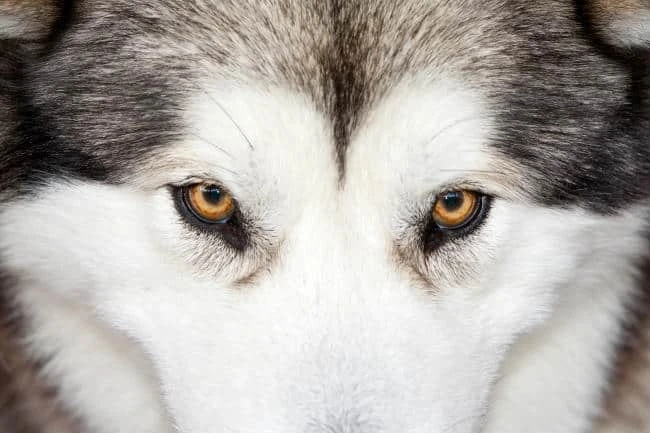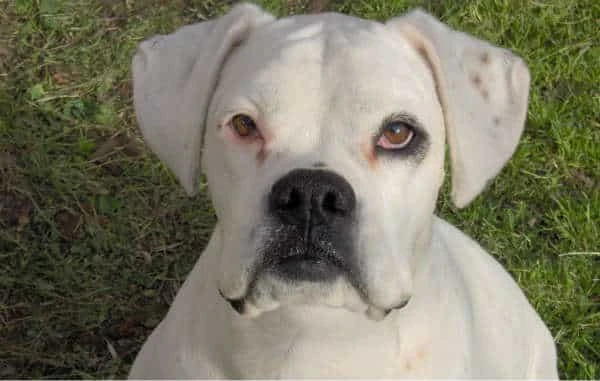A guide to pancreatic cancer, it's diagnosis, symptoms treatment

Canine Pancreatic Cancer…

Pancreatic Cancer is a particularly unpleasant condition sometimes seen on dogs. The nasty symptoms can vary but the most common symptoms can include lameness, bone pain, diarrhea, seizures, vomiting and weight loss. In some cases the condition can be terminal and may result in your dog needing to be put to sleep.
What Causes Canine Pancreatic Cancer? Pancreatic Cancer comes in two forms ‘Primary’ and ‘Secondary’. In Primary pancreatic cancer the disease develops by started to form in the Pancreas rather than originating in another part of your dog’s body (other organs) and then spreading to the Pancreas (if the disease starts in another organ and spreads to the Pancreas then this would be called ‘Secondary’ Pancreatic Cancer.
Of course both varieties need urgent treatment from a medical professional – however the severity and treatment options may alter depending on whether the Cancer is benign or malignant.
Benign Pancreatic Cancer – When the Cancer is diagnosed as benign this basically means that the tumor is very slow growing and limited to a single area (it is unable to spread to other organs).
Malignant Pancreatic Cancer – If the Cancer is diagnosed as malignant then the Cancer is extremely fast growing and can spread rapidly to other areas (organs) in your dogs body – it can also be passed through your dogs blood stream.
What causes Pancreatic Cancer in Dogs…? The actual cause of pancreatic Cancer is unknown but some dogs have a genetic predisposition to developing the condition. Older dogs are also more likely to develop the disease especially dogs over the age of seven.
It’s actually quite rare! This disease is also one of the rarest types of Cancers to develop in dogs with some experts estimating that out of all the types of Cancer it is seen in as little as five percent of cases.
Signs and Symptoms of Canine Pancreatic Cancer…
The signs and symptoms of canine pancreatic cancer can include some of the following…
This disease is very difficult to spot as the early symptoms are almost unnoticeable. As the illness progresses the symptoms become more easy to notice – however this means that the condition is more advanced and less easy to treat.
Your dog may exhibit some pain around the joints and bones,Your dog may appear weak and lethargic – less energetic than normal.Watch out for any behavioral changes – you know your pooch better than anyone – it is quite common for a dog that is ill to change their behavior – of course this is not always indicative of a health problem but it can inform a vet’s diagnosis.
Your pooch may have a loss of appetite – has your dog lost weight? Is your dog refusing food? Watch out for simple signs that your dog is off his diet.Your dog’s skin may start to suffer – jaundice (a yellowing of the skin is a symptom of canine pancreatic cancer).
In some scenarios your dog may start to experience seizures.Your dog may start to experience symptoms of Dyspnea – this is when your dog struggles to breath e.g. shortness of breath.Lameness is another symptom of the disease.
Your dog may experience diarrhea (blood may also show in the poop.Your pooch may also start to lose hair.Pain around the abdomen is also a symptom of the condition.
Diagnosis of Canine Pancreatic Cancer…The diagnosis of pancreatic cancer can be achieved through the following techniques. A vet will start by looking at the physical symptoms with a thorough physical examination. Of course your dog’s past medical history will need to be examined as their maybe a previous existence of the condition.
– If your dog is showing signs of Dyspnea (shortness of breath) then the vet may need to undertake a Laparotomy – this will involve surgery (where a small hole is made in the abdominal wall) and will confirm if your dog has the disease.
– Lab tests might need to be undertaken specifically enzyme and blood tests. The tests will look for a low blood cell count to determine if your dog has Anemia or Neutrophilia (where the neutrophilic white blood cells have risen).
– Other lab tests may include tests for Bilirubinemia (this is when your dog shows positive results for having Bilirubin in his blood stream).
– Another test that your vet may request is for your dog to be tested to see whether the blood has an increased glucose level (referred to as Hyperglycemia).
– Radiographic tests may also be undertaken – this is when radiographic tests are completed to determine whether there are any ‘shadows’ in specific areas – it might mean the organs have been displaced or moved.
– Ultrasound may show where the tumor is located and whether surgery is an option.
– Urine tests may also be taken.
If you have any concerns that your dog is displaying any of the symptoms shown on this page or you notice any behavioral changes in your pooch, you should always get a second opinion from your vet.
Treatment for Canine Pancreatic Cancer…
Treatment for this condition is not always very effective and the eventual prognosis for a dog with this diagnosis is not good and in most scenarios will shorten your dog’s life (but this all depends on how quickly the disease is caught – as with most illnesses the faster the early stages are spotted and treated the more positive the eventual prognosis).
Treatment may involve some of the following…
1. Chemotherapy may be undertaken in an effort to treat the condition.
2. The vet may perform gastrointestinal bypass surgery – this is normally only performed if the cancerous tumor has started to block or obstruct the bowels.
3. Pain relief and a change in diet may be recommended to make your dog’s life more comfortable.
4. Prescription medication may be used to treat symptoms.
Did you know?

It is also estimated by some experts that ninety percent of cancer cases are caused by processed dog food.
For example when dogs are fed poor diets (cheap dog food) that is high in fat, fillers and additives this may lead to a build up of fat in your dogs poop (referred to as Steatorrhea) – this may eventually lead to some of your dog’s organs becoming affected most notably the Pancreas and Liver.
Avoid feeding your dog any human food as it is high in fat and not suitable for your pooch.
References:
Ackerman, L. Owners Guide to Dog Health. 1995.
Mash, H. 2011. The Holistic Dog: A complete guide to natural health care. The Crowood Press.
The American Animal Hospital Association Encyclopedia of Dog Health and Care, 1994. Quill. New York.
The Doctors Book of Home Remedies for Dogs and Cats. 1996. Rodale Press Inc, Emmaus, Pennsylvania.
Return to Our Guide to Common Health Problems





